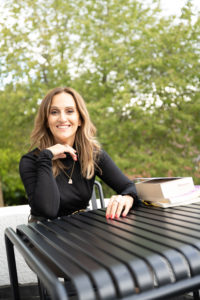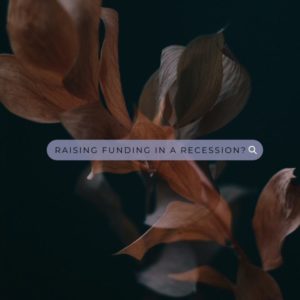It’s 2022, time for a fresh start. New goals for a new year.
One of mine is my fitness, the covid cracks are showing and I have made a strong commitment to myself to honour my body and bring it back to form.
So off I go to my new third space…
But in no time at all, I found myself fixated by what my neighbouring gym-goer could and couldn’t do.
Within moments of plonking myself on the mat to stretch, I had found myself in full-blown comparison mode and self-analysis. I had subconsciously started a downward spiral of negative self-talk about how poor I was at exercising. The more I thought about my lack of ability and competence, the more distracted I became, and the more distracted I became, the less able I became. And before I knew it, I was lying on the mat, daydreaming about a time where I felt confident, strong in my body, driven by competitiveness and feeling fit and healthy. What was more disappointing was I had turned externally to life’s conditions and made them the cause of blame for why I was no longer that person. Life had happened to me and taken my fitness away. All the excuses popped up; single parent, starting a business, COVID, divorce, and I was writing the chapters of the script, one by one.
Then my awareness kicked in. My being had awakened to realise I was consciously choosing this moment. I was the author, and I was experiencing a moment determined by my thoughts. I had entered what is known to be called a fixed mindset. A fixed mindset assumes that intelligence and skills are relatively set. People with a fixed mindset strongly believe that ‘you either have what it takes to succeed or don’t’. They view competence as an innate quality, something they’re born with, and that can’t be developed further, says Carol Dweck, Mindset the New Psychology of Success.
What I was doing at that moment was trying to prove to myself how great I was or how great I could be – essentially how great I am and that life had happened to me and that it wasn’t my fault that I had ended up being in this ‘unfit’ physical state.
As I sat there doing nothing and wasting time, I had a choice – I could sit there trying to prove to myself how great I was, or I could get better.
That is what happens when we are in a growth mindset versus a fixed mindset.
A growth mindset is based on the belief that your basic qualities are things you can cultivate through your efforts, your strategies, and help from others. Although people may differ in their initial talents, interests, and temperaments, everyone can change and grow through application and experience, according to Carol. Her book poses the question of whether people with this growth mindset believe that anyone can be anything. That anyone with the correct motivation levels or education could become Einstein. Not quite; they don’t think that. But they do believe that a person’s true potential is unknown. And that with years and years of passion, dedication, training, painting and toil, they can accomplish what they desire. Something that may be impossible to foresee.
In her book, she goes on to talk about how Darwin and Tolstoy were considered ordinary children. That Ben Hogan, one of the greatest golfers of our time, was completely uncoordinated and graceless as a child and that the photographer Cindy Sherman, who’s been on virtually every list of most influential artists of the 20th century, failed her first photography course. In addition, Geraldine Page, an incredible actress, was advised to give up for lack of talent. You can see how a passion for learning can develop cherished qualities.
This was the way in which I was raised. I was always taught that if you want something enough, that if you love something enough, if you care for something enough, your qualities could follow. And that it wasn’t about proving yourself how great you were. But you were just in the space of wanting to get better and holding that space for yourself. Maybe it was because my family was so truthful and authentic in who they weren’t and how they showed up. Because after all, if you’re trying to prove how great you are, in a sense, you’re hiding deficiencies from others instead of overcoming them. They liked being challenged, and they encouraged others to do so. They wanted me to have friends that challenged me to grow, not to shore up my self-esteem. (something I sought in my early twenties!).
They wanted me to stay in a place where I tried new things, and they wanted me to strive for experiences that would stretch me rather than just sticking to the tried and the familiar. Maybe that’s why I became such a globetrotter, eventually living across so many countries and never resting on what I’d accomplished but always continuing to stretch into new horizons. The passion for pushing yourself and sticking to it, even when everything wasn’t going smoothly, is essentially the hallmark of a growth mindset.
My parents were immigrants in the UK, so sticking to something and working hard was the bedrock of raising our family through what was very challenging times for them. During the Thatcher years, when my dad went bankrupt and struggled, they believed that not all good opportunity was down to luck, that it was a combination of hard work, faith, and divine good fortune. Unlike others around me at the time, they were spiritual enough to accept and nurture the idea of the fragility of life, so I was always one to grow up thinking: even if it is, if it’s not going so well, you stick to it, because essentially, it’s an opportunity to stretch and to grow.
In her book, Carol paints an excellent example of how the two mindsets, fixed and growth mindset, can work in her book. I think it’s a great summary.
‘Think about a bad day, for example, when you’re a student and have a significant class to attend. You like it a lot, and the professor returns your exam papers, and you get a C, and you’re very disappointed. And that evening on your way back home you find that you’ve got a parking ticket then in a state of complete frustration you call your best friend to share your experience. But she doesn’t really listen and give it importance; how does that make you feel? What would you think? What would you do?’
Carol Dweck says when asking people in a similar situation with fixed mindsets, she got the feedback: “I feel rejected. I’m a total failure. I’m an idiot. I’m a loser. I’d feel worthless and dumb. Everyone’s better than me. I’m slime” In other words, they’d seen what had happened as a direct measure of their competence and worth.’’
This is what we think about their lives. “My life is pitiful. I have no life. Somebody upstairs doesn’t like me. The world is out to get me; someone is out to destroy me. Nobody loves me.” Etc, etc. But in reality, there was no death. There was no destruction; was it not just a ticket and a bad call?
So then the question that pops to mind is, are these people just people with low self-esteem or are they carrying around pessimism?
No, because actually, when they’re not coping with failure, they feel just as worthy and optimistic, in fact, bright and attractive. As much as anyone would with a growth mindset.
She explains her finding on those with a growth mindset ‘When the same example is given to those with a growth mindset, they don’t use this material as raw material to create a feeling of utter failure and paralysis. They think I need to try harder in class and be more careful when parking the car. I wonder if my friend had a bad day.
They would tell themselves they would need to work harder on their following paper and speak to the teacher. To be careful where they park the car in the future, contest the ticket and find out what’s wrong with my friend’. (Hell, I have contested so many – I think I have contested nearly all the tickets that came through this past year!).
Essentially, none of these scenarios is something pleasant to experience.
But you don’t have to have one mindset or another to be upset. We are allowed to be upset. That’s fine. The question is, do we let our feelings of accomplishment and ability label ourselves? Do we let that label get to us so much that we throw up our hands and find ourselves, just like me, lying on a gym mat sulking about what life has ‘done’ to us and how we aren’t ‘good’ enough? Instead of simply focusing on just getting better?
Those with a growth mindset keep working on, essentially, growing. One might feel distressed but is still ready to take risks and confront the challenges. I remember doing this at University when I came back from Berlin after living there for a year, and I ended up getting a C grade. At that point, I wanted to throw the flag in and quit University. I got C’s for years at University, losing out to native speakers in my German class. And after a year in Berlin, coming back and still getting a C was the final straw. I thought long and hard about what I was going to do. I was either going to stay in this place of “I’m a failure, accept that this is how good I am at German and live with that label, a failed badge of honour”, or I was going to step up and look at it from a different perspective. I realised I had support. I wasn’t alone. I had my teacher, Dr. Gruber who was brilliant. So I went to him with a proposal, or shall I say experiment. I told him ‘I want to raise my German language grade from a C to an A so I can get my Dr, and I want you to tell me exactly what I need to do to get there.
He told me to go back to the beginning and re-learn German grammar from chapter one (I nearly screamed when he told me this). He told me to complete a new chapter each week and revise the previous week’s chapter. He told me to read one hour of the Frankfurter Allgemeine from cover to cover every day, and he told me to travel with a vocab book. I did precisely what he told me to do. Eight months later, I got an A.
‘We have lots of sayings that stress the importance of risk and the power of persistence, such as “nothing ventured is nothing gained” and “If at first, you don’t succeed, try again” or “Rome wasn’t built in a day”. But what’s truly amazing is that people with a fixed mindset don’t actually agree with them. It’s more like nothing ventured, nothing lost. And if at first you don’t succeed, you probably don’t have the ability. If Rome wasn’t built in a day, maybe it wasn’t meant to be’, says Carol.
So when you look at it, risk and effort are two different things.
She sees this incredible number of people with a fixed mindset believing in putting in effort or getting help. Go back to the belief that Rome wasn’t built in a day. Maybe it wasn’t meant to be, so actually, it’s more about your attitude to risk and effort—those with a fixed mindset simply don’t believe in putting in effort or getting help.
So as I lay there on the gym mat complaining to myself, asking myself if the workout was worth the effort, whether I would be able to stick to my resolutions, I found myself slipping into a fixed mindset. At that moment, I had the power of recognition, the ability to know that I had stopped being in a place where I was challenging myself and celebrating the importance of effort. I preferred instead to look at the fear that was blocking my appetite to challenge myself—depriving myself of the satisfaction of setting and achieving my goals. I had started nurturing my fear without realising it and became stuck in a fixed mindset. So at that moment, I flipped the script. I started entering a new conversation that encouraged me to take more risks. “Believe in yourself. You’ve got this, my body is strong, and it’s here to serve me, challenging myself is fun, I know you have strengths, now let’s go and discover them.” I felt silly but by the time I realised I had already crawled off the mat and was taking a gentle walk on the treadmill.





